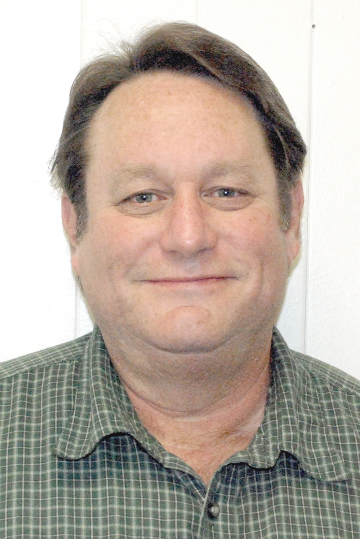 What a sad sight to see last week, as the hole appeared in the wall of what was Platte City’s most unique and distinctive structure. Far sadder it was to drive past Monday evening and see a giant piece of construction equipment standing in the rubble of what was once straight and true, hand-laid brick. The stately church structure with a steeple was built in 1867 at Third and Ferrel streets.
What a sad sight to see last week, as the hole appeared in the wall of what was Platte City’s most unique and distinctive structure. Far sadder it was to drive past Monday evening and see a giant piece of construction equipment standing in the rubble of what was once straight and true, hand-laid brick. The stately church structure with a steeple was built in 1867 at Third and Ferrel streets.
I feel the need to share a bit of the blame for the loss. I’ve admired this building for decades but never lifted a finger to help preserve it. The church stood so graceful against the skyline. The brick had a soft texture that seemed peaceful. Unfortunately, bricks from that era also weakened with time.
Current and previous owners undoubtedly faced a lot of challenges with this building. This building was so large and unusual — and undoubtedly super expensive to stabilize — that it likely needed a community’s help. We did not.
Those walls seemed so tall. What exceptional craftsmanship by bricklayers for the church to stand as long as it did. The back wall, once part of the side wall collapsed, you could see was only three brick layers thick. They were small bricks.
Union troops burned most of the County seat to ashes during the Civil War. Just a few years after the dreadful war had torn the County apart with ideology and violence, some citizens banded together to build a church. Methodists and Presbyterians shared the ground floor for worship services. A Masonic lodge used an upper floor. The Presbyterian congregation folded in the 1940s, and the Methodists moved to a modern building in the suburbs in the 1970s. Masons left, too.
I always wanted to look around the sanctuary but never did. But I loved the way the building reached for the sky in a noble way. A block off the courthouse square, it made the town stately. PlatteCity has few such structures to spare.
Weston is chock full of houses and buildings built before the Civil War or not too long after. They survived because of protection from FortLeavenworth across the Missouri River, plus Union-leaning residents helped spare the town from violent retribution during the war.
Bill Graham, who lives in the Platte City area with his family, may be reached by email at editor@plattecountycitizen.com.


